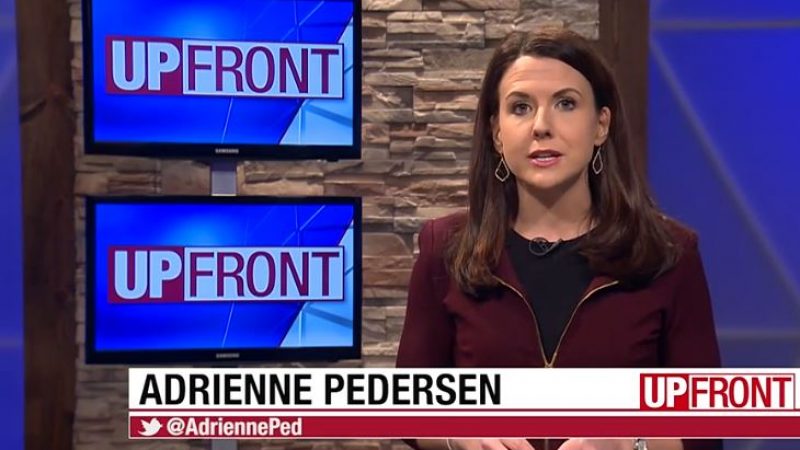Wisconsin Manufacturers & Commerce President Kurt Bauer said businesses have mixed feelings about the economy heading into the new year.
The leader of the state’s largest business lobbying group told viewers over the weekend on “UpFront” that there remains “a lot of unknowns” as to how an economic recovery will play out in 2021.
“It’s not terribly pessimistic but it’s not terribly optimistic either,” he said. “Obviously we’re not as bad as we were six months ago when we were really in the grip of COVID-19.”
Besides the pandemic, Bauer added there’s still plenty of uncertainty as to what exactly the incoming Biden administration will work on with taxes, the energy sector and regulations.
>> WisPolitics is now on the State Affairs network. Get custom keyword notifications, bill tracking and all WisPolitics content. Get the app or access via desktop.
He said the state is already getting close to full employment again with unemployment levels sitting around 5 percent. WMC members actually have had trouble finding enough workers to keep up, according to Bauer.
“The fortunes of the economy and of jobs and of thousands of businesses depends on that vaccine,” he said. “I can’t overstate the importance. If we can get that thing administered, distributed, we can really begin to recover the economy and get people back to work.”
Bauer also said he’d love to see any new federal stimulus packages include liability protections for businesses and schools from “frivolous lawsuits” over their handling of the COVID-19 pandemic.
U.S. Rep. Mark Pocan, D-Town of Vermont, on the show last week pushed back against passing such protections, claiming certain businesses have been negligent towards the safety of employees from the virus.
But Bauer this week said he fundamentally disagrees with Pocan’s assessment. He said the business community has “stepped up in a very admirable way” and deserves recognition for its efforts.
Also on the program, Wisconsin State AFL-CIO President Stephanie Bloomingdale said working people have been the ones who “bore the brunt” of the pandemic.
The union federation leader praised frontline workers and workers of color who couldn’t do their job virtually for helping the economy “power through” the last year.
“If workers aren’t safe, really our society is not safe,” she said. “While it was the frontline workers who powered us through this pandemic, workers also suffered disproportionately in terms of financially and also the numbers who were sick and died.”
Bloomingdale called the ongoing vaccine rollout “the light really at the end of the tunnel” and urged distributors to work quickly in immunizing the population, especially among health care professionals and frontline workers.
Meanwhile, Dennis Winters, chief economist for the Department of Workforce Development, told viewers a full economic recovery in the state isn’t expected until around 2023.
But he acknowledged uncertainty means a full recovery may take even longer, as much depends on how quickly vaccines roll out to the general public and the economy begins to churn.
“I think once we get the vaccine in and it’s widely distributed and effective, I think those industries will come back pretty quickly,” Winters said. “Because people will want to get back out and resume what has been their normal life before the COVID.”
See more from the program:
https://www.wisn.com/upfront



